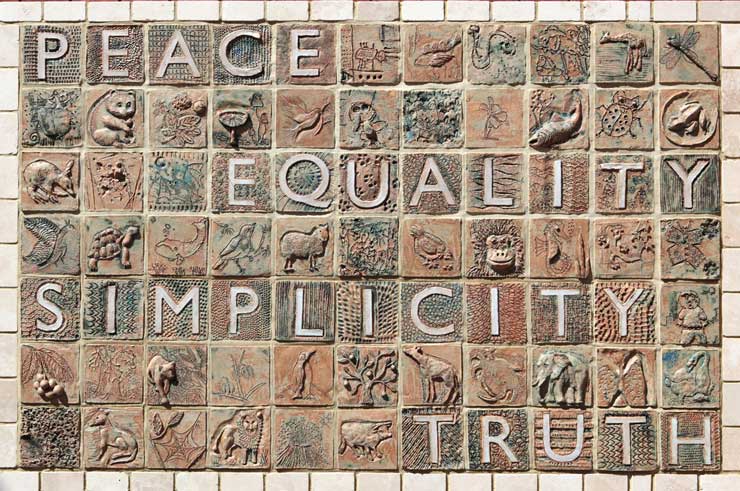|
Equality
The concept of the Inner Light, or "that of God in everyone," has meant to Friends that everyone
has value, and we should treat all people equally. Even back in the 1600s, women were among the
leaders of Friends; notable early Quaker women included Margaret Fell and Elizabeth Fry. Children
also played important parts; on one occasion when all of their parents had been arrested for
worshipping in the Quaker way (at a time when the Church of England was the only legal form of
worship), the children continued to hold Quaker Meetings.
There was a time when many Quakers owned slaves. However, most of them did come to the conclusion
that slavery was wrong before it was outlawed, and freed their slaves. Many stops along the
Underground Railroad were run by Friends. One of the most recognisable stereotypes of Quakers,
their plain grey garb, was a result not only of the testimony of simplicity, but also due to the
fact that indigo was produced by slave labour, and Friends would not wear clothes any part of which
came from the labour of slaves.
Early Friends refused to take off their hats to their social superiors, including the King himself,
which also led to trouble with the law.
Friends argued that only God deserved this level of extraordinary respect. Traditionally, Friends used
"thee" and "thou" to address anyone, as another reflection that we are all equal. At the time,
"thee" and "thou" were common second-person usage among intimates, like the French "tu". Many
Friends continued to use "thee" and "thou" after they dropped out of most people's vocabularies,
but nowadays most perceive this usage to be something of an affectation, since using "you" universally
also serves the purpose of treating everyone equally, without setting us apart.
|
|

